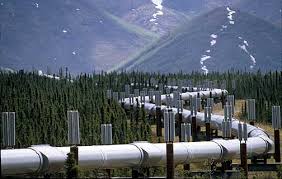The European Commission has approved a sum of 107 million euro from the European Regional Development Fund (ERDF) for the development of five projects, budgeted at a total of 551.6 million euro, aimed at improving natural gas supply within Greece.
Besides upgrading the country’s transportation and distribution infrastructure for natural gas, these projects also promise to improve safety levels in Greece and the wider southeastern Europe region. They will also offer increased energy savings.
Furthermore, the projects also stand to contribute to Greek economic growth as a greater number of consumers will be served, while regional firms will become more competitive, especially in the wider Athens area, Peloponnese, the mainland, and Greece’s central Macedonia region, in the country’s north.
The European Commissioner for Regional Policy, Johannes Hahn, noted that such projects illustrated how the EU’s regional policy focused on future-oriented investments for matters such as energy efficiency, achieving sustainable economies, and offering company support, especially for small and medium-sized enterprises.
“Greek citizens and enterprises will feel a real difference with a modern and more effective energy supply system,” Johannes Hahn noted. “The growth of regional firms will be bolstered, while households will be assured better and lower-priced energy supply.”
Two of the five projects concern upgrading Greece’s only terminal for liquefied gas, located on the islet of Revythoussa, in the Saronic Gulf, close to Athens. The facility is used to store natural gas transported via sea routes from distant sources.
The three other investments concern developing a gas compressor station in Greece’s central Macedonia region; further extension of an unfinished high-pressure natural gas pipeline to connect Greece’s second-largest island of Evia, slightly northeast of the wider Athens region, with mainland infrastructure; and a 167-km pipeline stretching from Agii Theodori in the wider Corinth area to Megalopoli, southwest Peloponnese, intended to supply natural gas to a PPC (Public Power Corporation) station in Megalopoli, as well as residential and industrial areas in the wider region.





